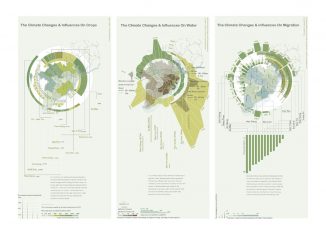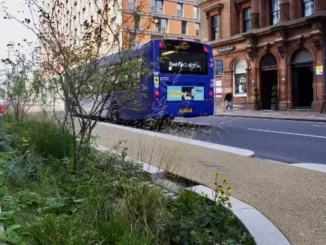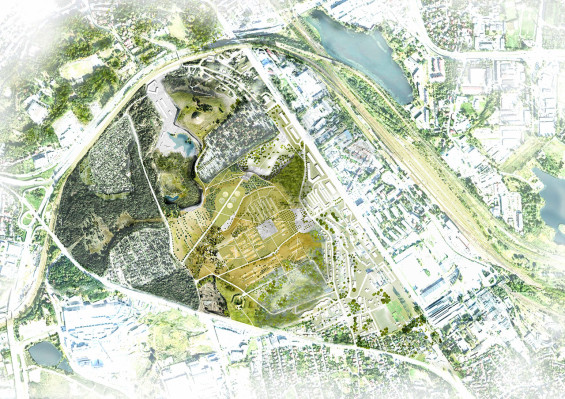
It is apparent that the site is scarred by history and that the necessity for memory is eminent.
And that is what mostly influenced my decisions. Besides the site’s history, users memories are important as well. There was a clear decision that needed to be done: How do you balance the daily activities of a park with the touristic and memorial aspects?
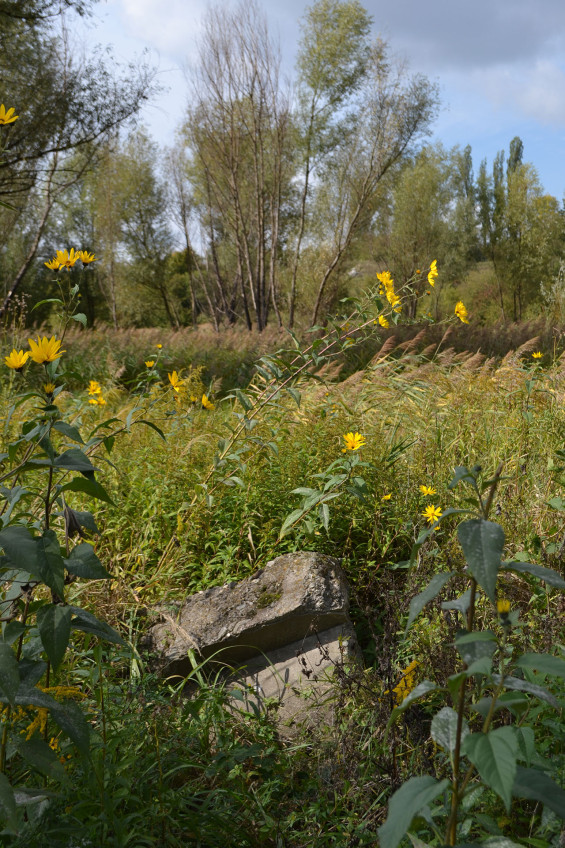
SITE DESCRIPTION
1942: Erected on the grounds of two Jewish cemeteries, Plaszow became a favoured for mass execution. Run by Amoen Goeth, it became the last destination for many Jews, Polish and other ethnicities considered as threat. During its three years run, an average of 10.000 people was killed.
2014: Hidden away by the overgrown vegetation, there is no sign of the horrific past. After 72 years, the landscape has gone through a process of natural regeneration that would not hint any of the past events. The Liban Quarry has become a separate ecosystem with intense willow plantations and vivid green hiding all its limestone sharp edges. The former camp site is covered in long grasses that capture your eyes through their movement and yellow exterior.
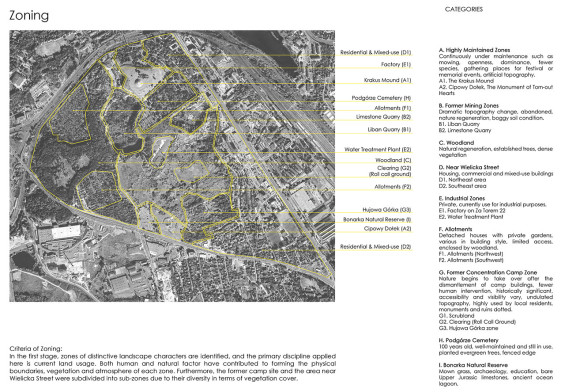
It is difficult to visit Poland without being reminded of the controversial past and Krakow is a city that despite is historic city center brings tourists for its dark memories. Podgorze, a district with a big potential for residential and commercial is still haunted by its past, everything here being underdeveloped, almost abandoned. Plaszow camp is still untouched despite the developments that have started to pick up around it. There are no guided tours, no signage, and no information displays, nothing that tell the story of this place. Amoen Goeth’s house is still abandoned, as well as the Grey House, a few memorials scattered around and a monument in memory of those who perished here are the only informative elements. Plaszow camp is a place of contrasts: it may as well be the most horrific place in Krakow but also the most peaceful.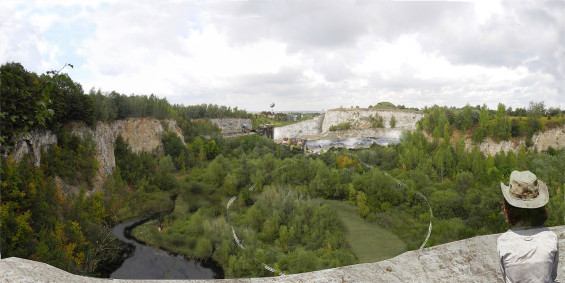
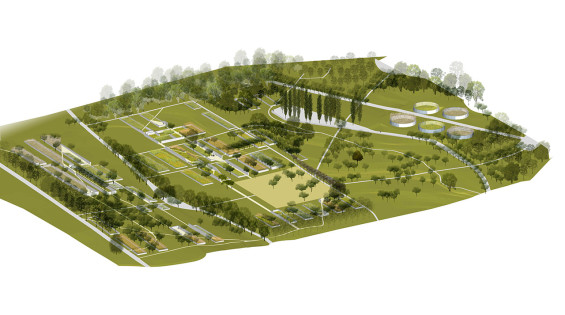
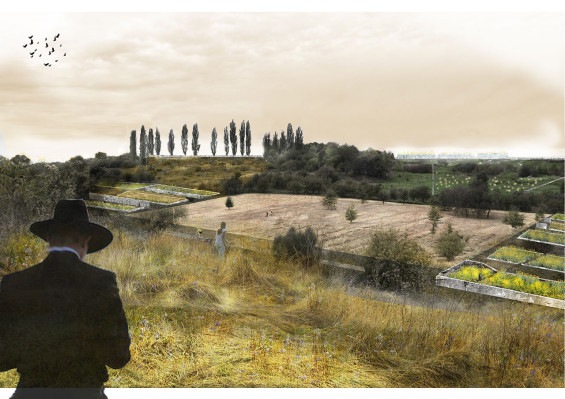
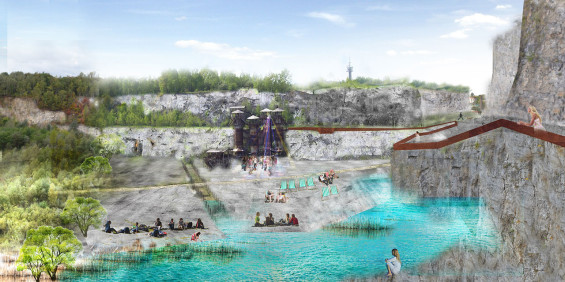
PERSONAL BRIEF
The approach tries to explore all its historic layers, by exposing the past but also as way of closure, giving people a place for mourning and remembrance. The memorial aspect is to be a key element to define the new park but the intention is to stimulate the users and make remembrance optional. Avoidance of imposed memorials is mandatory. There is no need for another Auschwitz where the abundance of information and preservation of structural elements presented in this formal guided tour created a lack of connectivity and false emotions. Users should have the choice in which they remember the history and that what Plaszow Park aims to be: a park that tells the story of the site in a subtle way by giving people a choice in the way they perceive the space, its memory and the way they use it. A visitor’s experience should be tailored to their needs and along with the information, be it historical, cultural or ecological should be regarded as optional and not imposed.
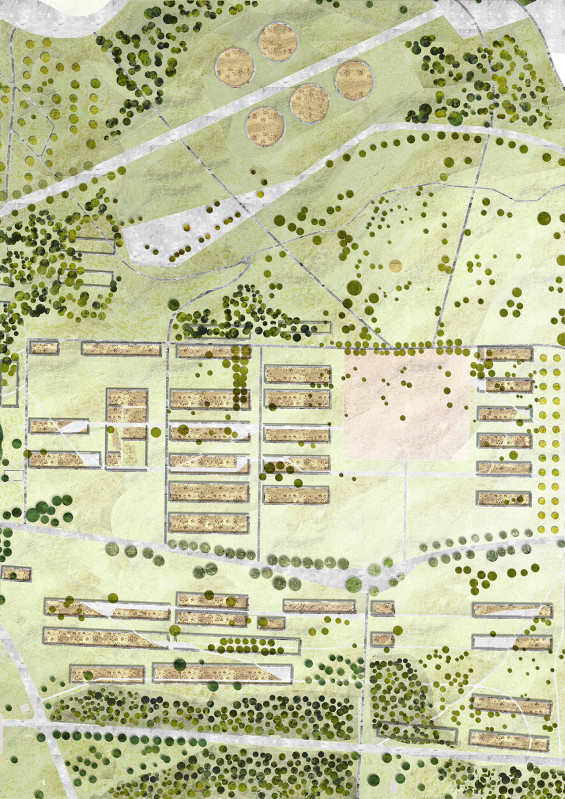
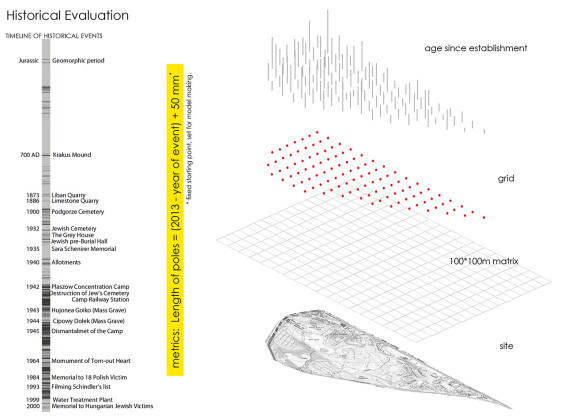
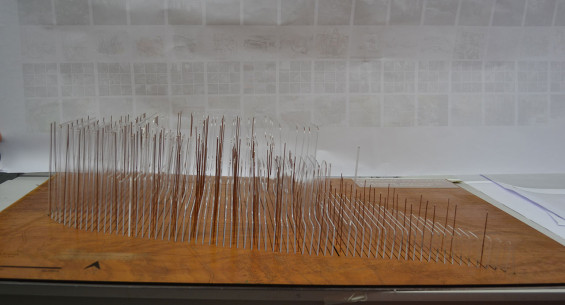
Plaszow WWII Concentration Camp
In Between Layer of History and Optional Remembrance
Krakow, Poland
Student | Anca-Elena Panait
School | Edinburgh University, College of Art, Edinburgh, Scotland
Program | Completed during the 2nd year of Master in Landscape Architecture
LOCATION: Krakow, Poland
STUDENT STUDIO DESIGN PROJECT
Edinburgh University, College of Art, Edinburgh, Scotland
Completed during the 2nd year of Master in Landscape Architecture

